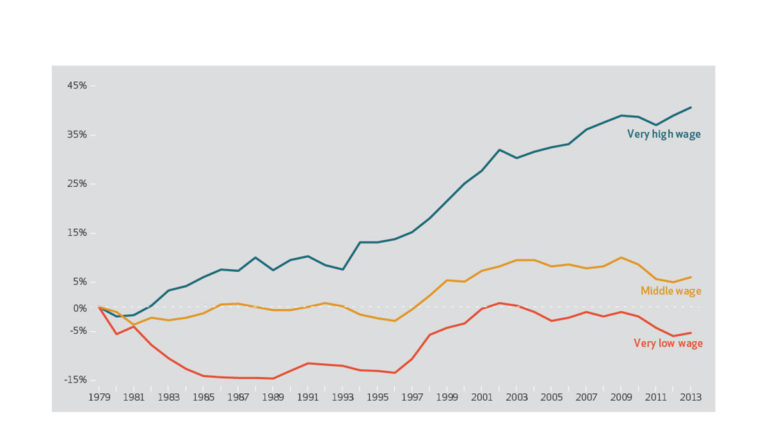High Pay Gets Higher, Low Pay Gets Lower
Middle-wage earners have not seen much of an increase in pay, and low-wage earners have almost exclusively seen drops in their pay over the decades.

Read Time: 2 minutes
Published:
An employed person in the United States is healthier than an unemployed person, and a highly-paid employee is more likely to have better health. The federal minimum wage in the United States is currently set at $7.25 per hour. Workers who receive tips are required to receive a minimum of $2.13 per hour. These minimums have not been changed since 2009 and 1996, respectively.
An October health policy brief in Health Affairs highlights fluctuations in wages and how population health reflects these changes. J. Paul Leigh and Juan Du emphasize that the labor market does not strictly follow basic economic assumptions. In particular, they explain that an increase in wages may not reduce quality of work, as an economist critiquing minimum wage hikes might expect. Instead, they argue increased wages can improve productivity by boosting morale.
The wages between 1979 and 2013 only rose notably for those with already very high pay. As the image above depicts, people in the middle wage group have not seen much of an increase in pay over the years, barely reaching a 10% increase in 2009.
Those with very low wages have almost exclusively seen drops in their pay over the decades. Low-wage workers make up 29% of the United States workforce. This means there are 47 million people who are paid poorly for their work.
The authors also explain how increases in the minimum wage can positively impact health, citing prior research on the connections to lower smoking, fewer missed work days, and improved birthweight. While many states are looking to raise their minimum wages in 2019, the authors recommend that those still caught in the debate should approach the decision from both a health and economic perspective.
Databyte via J. Paul Leigh and Juan Du, Effects Of Minimum Wages On Population Health. Health Affairs.



